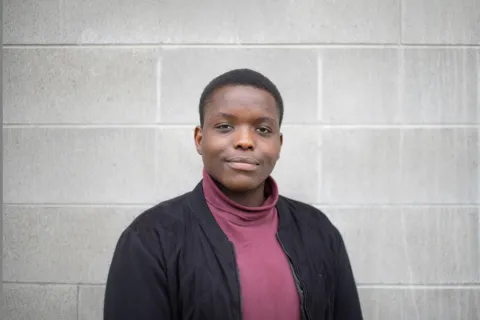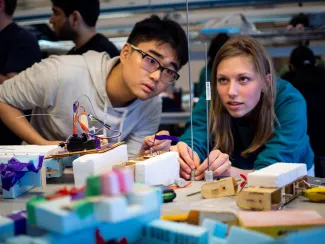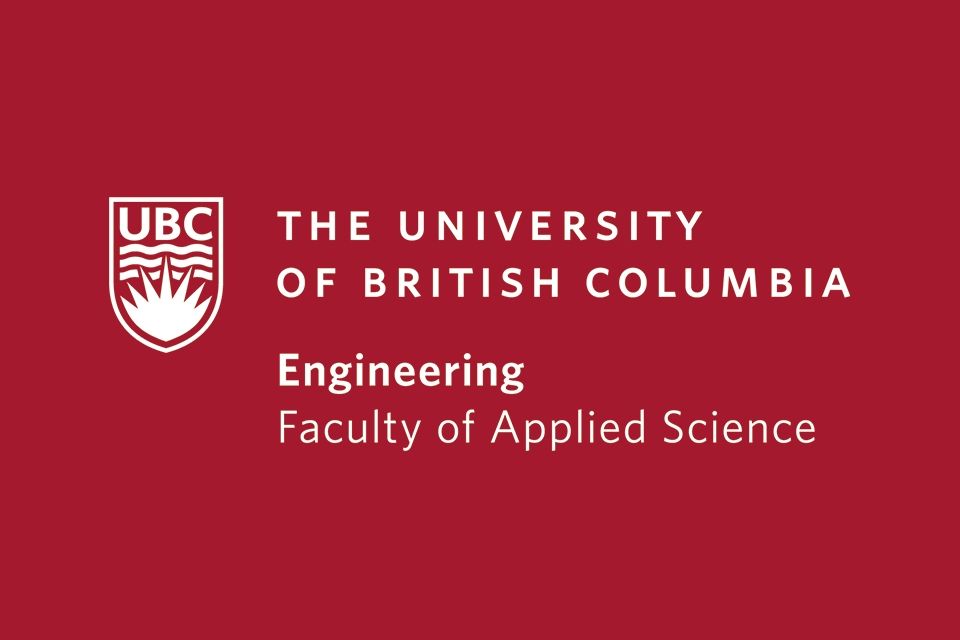"Focus on learning. The goal is not to be perfect, but to always be improving."

Danny Wanjohi
- Degree:
- Bachelor of Applied Science
- Program:
- Campus: Okanagan
- Year: 5th year (as of September 2023)
Why did you want to study engineering?
I was interested in pursuing astrophysics, but you really need a PhD to work in that field. My dad recommended I think about engineering as an option as it would enable me to work in an area that fascinated me without needing to pursue so many years of education, and I could still keep a door open for astrophysics if I ever wanted to pivot my path towards that field.
How did you choose Mechanical Engineering and Mechatronics?
I was very involved with a robotics club in high school, and I was torn between electrical and mechanical engineering. After doing the first-year foundation program, I found myself more inclined to the mechanical side. Thankfully I learned that the mechatronics option was a possibility, which seemed to be a natural fit for me: I could still study mechanical engineering while gaining some knowledge of electrical engineering, as well as build insight into how the two fields mesh with each other.
Tell us about your co-op experience.
I worked for 12 months at EnCann Solutions in an automation co-op role, followed by a three-month automation consultant position. EnCann is a startup company that connects industrial farmers with licensed cannabinoid businesses via a proprietary automated extraction system. These are early days for applying an engineering approach to the cannabinoid industry. My primary role was to design, build up and test the communication architecture between all the various manufacturing devices that EnCann employs in its extraction process. I just loved it, and it felt extremely satisfying to see my creations having a direct impact, not just for the startup but also in making the lives of the operators easier. This is a startup, after all, so my role was very fluid, and I was learning something new every day.
As a result of your engineering education, do you approach problems in new ways?
Definitely. It used to be very easy for me to get lost in the details of a problem. This served me well for a time, but I’ve learned to change my mindset. No matter what the problem is, I now start at a bird’s eye view to understand the big picture and how everything fits together at a high level, and then work down to the details.
Any advice for other students considering engineering?
Focus on learning. The goal is not to be perfect, but to always be improving.
Although engineering is not going to be easy, it is going to be worth it.
Finally, while it is good to have knowledge and project experience, it is equally important to know people and nurture relationships.
Having a community of people who know and care about you makes it easier when your initial plans don’t quite work out as expected. I have a few examples of this, starting with my first-year roommate who I had exchanged emails with before I arrived in Canada. When I landed in Vancouver, I missed my flight to Kelowna because of study permit processing delays and all the other flights that weekend were booked up. I contacted my roommate, and his family picked me up, gave me a place to sleep and drove me to Kelowna. Or my undergraduate professor who believed in me and introduced me to the company where I had my co-op job. Or my work colleague from co-op who took me into their home when I was evacuated during the wildfires in Kelowna. My friends have also been very supportive, and we have helped each other to achieve our goals. Knowledge is necessary for a foundation, but people will take your knowledge further.





